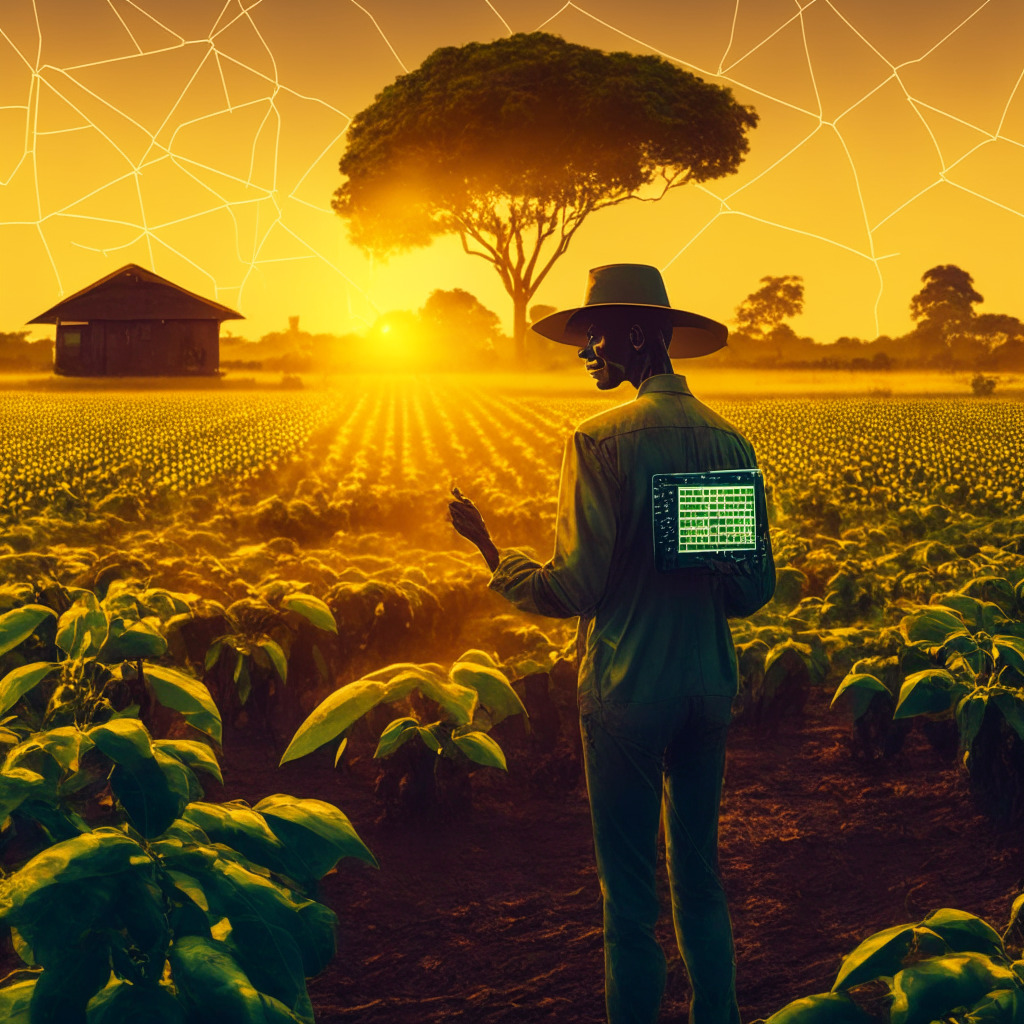East African farmers are toeing the adoption line of blockchain technologies as they seek international clientele to sell their products. However, their venture isn’t as clear cut with the skeptics raising eyebrows. Are the farmers ready, or are the challenges overwhelmingly insurmountable?
The heart of the matter revolves around blockchain’s immutable nature. By storing data across a network of computers, the technology ensures transparency and cannot be altered or manipulated, which addresses sustainability and ethical concerns. This feature is vital for avocado growers in East Africa and coffee farmers in Latin America who must prove adherence to ethical farming practices in order to export internationally.
To this end, One Million Avocados (OMA) and Dimitra – an AgTech firm – have initiated a partnership to strengthen Kenyan farmers’ farming practices with emerging technologies including blockchain, AI, satellite imaging, and mobile technology. The result is a clear provenance record and increased rates of productivity that align with international frameworks for sustainable farming. A sure sign that the farming industry could undergo a revolution, right?
On the flip side, many critics argue that the combination of technologies poses a challenge. Some farmers resist transitioning to new technologies, raising doubts about total absorption and effectiveness. This skepticism isn’t unfounded as the process requires a considerable injection of patient capital, technological knowledge, and endless effort to persuade the traditional farmer about the perceived benefits. Is skepticism valid considering that leapfrogging demands a seismic shift?
Blockchain has had notable influence outside Africa’s farming scope. Remember the listeriosis outbreak in South Africa in 2017? Shadrack Kubyane mentioned that tamper-proof agricultural records would have determined the outbreak causes within a short time. Consequently, wouldn’t blockchain technology also be beneficial to the African agricultural sector to ensure quality assurance?
All said and done, the critics and proponents must agree on one thing: patience is necessary. Integration of emerging technologies to advances agriculture on the continent will definitely take time due to the myriad obstacles. Trask mentions onboarding might not even reach 100% in some cases. Nevertheless, the resulting gains from blockchain application in areas like traceability, fertilization, and irrigation can unequivocally amplify productivity.
A vivid picture emerges. Blockchain applications promise bountiful gains to the East African farmer who can retch up prices due to provenance and sustainability. However, the road to adoption is riddled with numerous challenges requiring a significant shift. Thus, the path to blockchain adoption and wider technology application in agriculture is paved with admirable ambitions, scepticism, and formidable challenges. A lasting solution requires stakeholders’ patience, understanding, and continued effort to embrace change for a revolutionized agricultural future.
Source: Cointelegraph




